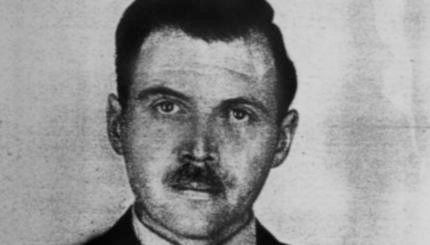If the wrong candidate wins, you’re moving to Canada.
Canada: land of safe haven for refugees, universal health care, hate speech laws, religious pluralism, marriage equality, ecological awareness, and beginning reconciliation between government and Indigenous First Nations.
It is a great place, but it has not always been so welcoming.
It is also a land with the worst record of any Western country in sheltering Jews fleeing the Holocaust. Land where an unnamed immigration official, asked how many Jews Canada would admit in 1945, responded “None is too many!” Where Jewish refugees were imagined as communist infiltrators. Where officials actively undermined European efforts to rescue refugees, lest Canada, too, be called on to help. Where the few who did arrive to join existing Jewish communities faced antisemitism at all levels of life.
No wonder Jewish communities in contemporary Canada are so conservative. We are heavily influenced by Jewish practices of earlier immigrants from Britain — and we don’t have time for internal creative strife. We sleep with one eye open, and, while awake, try to watch our own backs. Only 60 years ago, when we were fleeing a narrow place, weary and exhausted, our weakest were turned away.
Sixty years ago, a fiery preacher could describe Canada euphemistically in Biblical language reserved for Amalek, the tribe whose name became a euphemism for pure evil. As we fled Egypt, says, we were weary and exhausted. Amalek attacked our weakest from behind. Each year in synagogue we read about this just before Purim. “Blot out the trace of Amalek.” Torah tells us. “Don’t forget!” (Deuteronomy 25:17-19).
Blot out every trace but don’t forget.
We explored this paradoxical teaching last Friday at the Vancouver School of Theology, at an event called, “Our Home and Native Land? A Multi-faith Symposium on Refugee Resettlement.” Our keynote speaker was Dr. Harold Troper, co-author with Irving Abella of the book None is Too Many: Canada and the Jews of Europe 1933-1948.
Dr. Troper spoke about the emotional challenges of his research. At JIAS, the Jewish Immigrant Aid Society, he read through boxes and boxes of letters submitted to immigration officials. Some were written by parents begging for their children’s lives. “Michael is a good boy, obedient and friendly. Perhaps a family in Canada might love him as we love him.” Each letter received the same response, “We are not accepting any more Jews at this time.”
Dr. Troper also told us how Canada’s immigration policies softened. As Vietnamese people fled their war-torn country in 1979, Canada’s immigration minister Ron Atkey happened to read an article about None is Too Many. Atkey, troubled and ashamed of Canada’s history, insisted that Canada welcome 50,000 Vietnamese refugees. Atkey’s advocacy laid the foundation for Canada’s strong (though slow-moving) commitment to welcome Syrian refugees today.
As Dr. Troper spoke, the audience cried – tears of sadness at lives lost to hate and ignorance, followed by tears of relief and wonder at how one immigration minister’s broken heart turned a country around.
Even though we knew – and our multi-faith commentators agreed — one heart alone is not enough.
Reverend Richard Topping urged us to remember that every human being is created in the image of God.
Rabbi Dan Moskovitz encouraged us to see Passover as a ritual for developing empathy for those fleeing oppression.
Imam Balal Khokhar insisted that sharing in times of scarcity creates abundance.
Indigenous Studies Coordinator Catalina Parra taught that we must continue to work together to help both traditional and new Canadians. Just as Canadian-Indigenous reconciliation has just begun, so our welcome of refugees has just begun.
And we learned: don’t forget the damage that hate and apathy can do. Blot out its traces from your heart, and from the heart of your country.
If you can do that, you won’t need to move to Canada.
Image: Crossing the Red Sea, attributed to Charles Le Brun, Wikimedia Commons


